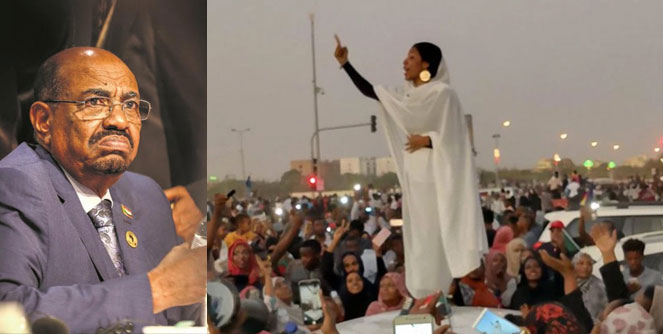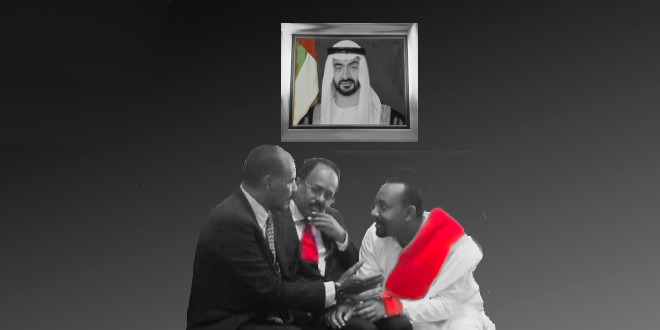Sudan: Al Bashir’s Government Ousted

The early morning hours of Thursday ended Omar Al-Bashir;’s thirty-year rule in Sudan. By dawn, a group of military officers entered the building of the Sudan National Broadcasting Corporation (SNBC) and briefly pulled the plugs off the television and radio services. They have also closed the airports.
Since 5am Sudan time, the television screen has been displaying a message to viewers to “Expect an important announcement by the Armed Forces.” 7 hours later, people interested in the developments in Sudan are still waiting for the announcement.
Above the announcement stripe, the television has been showing landscape scenes as music, mostly marching band played in the background.
The Sudanese are familiar with such music that are played before several military coups in the past, the last one in 1989 when the current National Congress Party deposed Sadiq Al-Mahdi’s elected government.
In 1969, Jaafer Numeiri ousted Ismail Al-Azhari’s government and ruled the Sudan until 1971 when he was ousted by the Communist party’s Major Hashim Al-Atta. The coup failed when Gaddafi’s fighter planes intercepted the airplane that carried Babikir Al-Nur in mid-air over Libya as it was flying from London to Khartoum. Babikir was supposed to be the president of Sudan.
As the news of the fate of Babir Al-Nur reached Sudan, loyalists of Jaafer Numeiri freed him from detention and he regained his power. But the fate of the communist party leaders was sealed as Gaddafi handed Babikir Al-Nur to Numeiri who killed him together with Hashim Al Atta.
In April 1985 Numeiri’s rule came to an end when military officers led by Field Marshal Abdel Rahman Swar al-Dahab, the Commander-in-Chief of the Armed Forces, ousted his government. In May 1986 Swar Al-Dahab surrendered power to the democratically elected government of Sadiq Al-Mahdi, the leader of the National Umma Party.
On June 30, 1989, General Omar Al-Bashir ousted the elected government of Sadiq Al-Mahdi. Al-Bashir’s iron-fist rule was just 50 days shy of thirty years when he was ousted this morning.
Though his condition is unknown, Al-Bashir is staying in his home under guard by unknown officers who have almost taken full control of the country.
Some opposition leaders have expressed their worries of a military rule replacing the military regime of Al-Bashir. “It will be one military replacing another, we are hoping for a transitional leader who would be an embodiment of the wisdom and patriotism of the late Swar Al-Dahab.”
Swar Al-Dahab died in Saudi Arabia on October 18, 2018.
The current change is a result of popular demonstration that started in December 2018 demanding the removal of the Al-Bashir government.
An hour ago, a senior Russian official stated that what is going in Sudan is “unconstitutional” and should not be supported.
Arrests
So far over a dozen people are arrested by the military, though only the names of four prominent allies of Al-Bashir has been known. They include Ahmed Haroun, the secretary of the ruling party; Osman Mohammed Taha, the ex-vice president of Sudan; and General Abdulrahim Mohammed Hussein.; and Awad Al-Jaz, a close ally of Al Bashir who held several ministerial portfolios and was in charge of the “China File”.
Update: the military officers who took power announced a two year transitional period before surrendering power. A curfew is imposed.



Awate Forum